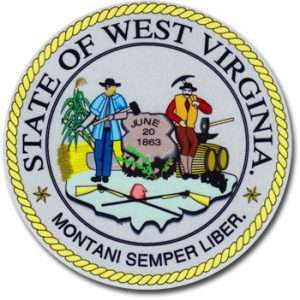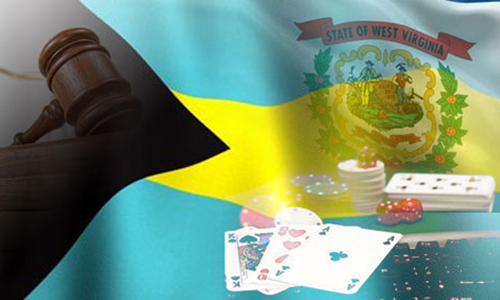Online Gambling Bill Introduced in West Virginia
Another online poker bill has been introduced in a state legislature and if it eventually becomes law, perhaps the country roads will have to take me home to the place I belong. Legalized online poker would bring teardrops in my eye. I can just picture it, living at the foot of the Blue Ridge Mountains, going to bed dreaming of poker. I hear her voice. In the mornin’ hour she calls me, so I login to play in a Sit-and-Go. Almost heaven, West Virginia.
On Tuesday, House Bill 3067 was introduced by Delegate Shawn Fluharty (D – Dist. 03) and is now in the House Judiciary Committee. Though other states’ bills usually use consumer protection as their reasoning for the legalization and regulation of online gambling, this bill doesn’t exactly do that. Yes, it does emphasize the importance of strict regulations, but the main reason for the bill seems to be monetary. From the bill’s intro, it says that “The Legislature finds”:
(2) That legalization of video lottery and table games in West Virginia has delivered substantial benefits to the state, including the creation of thousands of significant contributions to racing and agricultural industries;
(3) Developments in technology and recent legal decisions have created an opportunity to legalize interactive poker as a means to further enhance and complement the benefits delivered by casino gaming and licensed facilities to or for the benefit of the communities in which they operate;
As can be seen above, the bill specifically calls out online poker (and defines poker later), but consistently uses the phrase “interactive gaming,” implying that other forms of online gambling, such as casino games like slots and roulette, would be permitted.
 And not only are interstate gaming compacts permitted by the bill, it almost looks like they are expected.
And not only are interstate gaming compacts permitted by the bill, it almost looks like they are expected.
“To the extent practicable,” HB 3067 reads, “the commission shall negotiate interactive gaming agreements with other states, territories or possessions of the United States in which interactive gaming has been authorized to allow players in this state to participate in authorized games with players in such other jurisdictions.”
As we well know by now, such interstate agreements are important for online poker in order to build the potential player pools (and alliteration!). Poker is extremely dependent on player traffic as it is a multiplayer game, as opposed to casino games, which can be played online very easily by single players alone at tables. Obviously, an online casino needs plenty of players to make money, but it can succeed with fewer players spread across casino game tables much better than it can with the same number of poker players spread around the poker room.
West Virginia would likely need to ink interstate deals in order for online poker to succeed there. It is only the 38th largest state, with an estimated 1.831 million residents. Compare that to Nevada, where online poker hasn’t exactly thrived (though it has survived), but which has more than one million more residents.
The bill would permit current facilities which are licensed to offer video lottery games and table games to apply for online gaming licenses. It does not appear that there would be an application fee and the licensing fee would only be $50,000. Operators will be taxed 14 percent of gross gaming revenue.
The usual requirements of operators are set forth by the bill (emphasis added):
(1) To ensure, to a reasonable degree of certainty, that authorized participants are not less than twenty-one years of age;
(2) To ensure, to a reasonable degree of certainty, that authorized participants are physically located within this state or such other jurisdiction that is permissible under this chapter;
(3) To protect, to a reasonable degree of certainty, the privacy and online security of authorized participants;
(4) To ensure, to a reasonable degree of certainty, that the interactive games are fair and honest and that appropriate measures are in place to deter, detect and, to the extent reasonably possible, to prevent cheating, including collusion and use of cheating devices, including the use of software programs, sometimes referred to as “bots,” that make bets or wagers according to algorithms;
(5) To minimize compulsive gambling and to provide notice to authorized participants of resources to help problem gamblers; and
(6) To ensure authorized participants’ funds are held in accounts segregated from the funds of licensees and otherwise are protected from corporate insolvency, financial risk or criminal or civil actions against the licensee.
This is the latest in a flurry of online poker bills that have been introduced this year. In addition to West Virginia, there are currently active bills in Pennsylvania, New York, California, New Hampshire, Michigan, and Massachusetts.



















COMMENTS